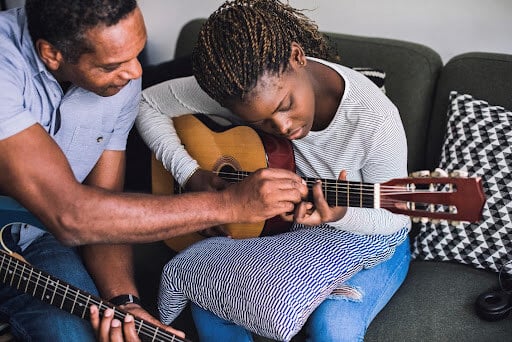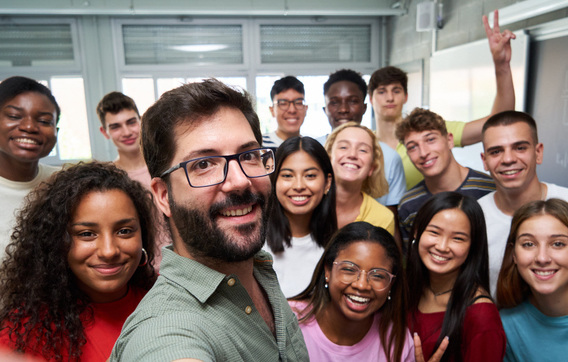Blog
Supporting Young People to Help Them Feel Seen, Heard, and Valued
Today many in schools, afterschool programs, and families are asking, how can we support young people to ensure they feel seen, heard, and valued?
The answer lies in a comprehensive and intentional approach to creating positive skills and values, as well as close connections with adults and peers. This helps young people cultivate their abilities to shape their own lives, build resilience, and thrive. In short, developmental relationships and developmental assets are the answer—and both are critical for youth development, especially for those growing up in challenging circumstances.
The Developmental Assets Framework
Developmental Assets®, an integral part of developmental relationships, are the positive values, relationships, skills, and experiences that help children and teens thrive. Search Institute has studied Developmental Assets® in the lives of millions of young people across the United States and around the world. Research consistently shows that young people from all backgrounds do better when they have a strong foundation of these strengths in their lives.
Search Institute has identified 40 positive supports and strengths young people need to succeed—to be seen, heard, and valued. Half of the assets focus on the relationships and opportunities they need in their families, schools, and communities (external assets). The remaining assets focus on the social-emotional strengths, values, and commitments that are nurtured within young people (internal assets).
External Assets
-
Support. Young people thrive when surrounded by people who love, care for, appreciate, and accept them.
-
Empowerment. Feeling valued and valuable is important. This happens when youth feel safe and respected and when they perceive that adults in the community provide useful roles for youth.
-
Boundaries and Expectations. Young people benefit from clear rules, consistent consequences for breaking them, high expectations, and encouragement to do their best.
-
Constructive Use of Time. Opportunities outside of school help young people to learn new skills and creativity and to develop shared interests with other youth and adults.
Internal Assets
These are the personal skills, commitments, and values they need to make good choices, take responsibility for their own lives, and be independent and fulfilled.
-
Commitment to Learning. Young people need a sense of the lasting importance of learning and a belief in their own abilities. Ideally, they do homework every day and read for pleasure regularly.
-
Positive Values. Developing strong guiding values or principles helps young people to make healthy, responsible life choices.
-
Social Competencies. Young people thrive when they develop the skills to interact effectively with others, to make difficult decisions, cope with new situations, and resolve conflict nonviolently.
-
Positive Identity. Believing in their own self-worth, understanding that their lives have purpose, and feeling they have control over the things that happen to them greatly benefit young people.
Creating an Environment Where Young People Feel Seen, Safe, and Valued
All young people deserve to be valued and protected and to have their basic needs met. But how do we do this? How do we create the conditions for them to develop and thrive?
The answer is both simple and fundamental: for adults to demonstrate love and acceptance; to show young people they are seen and known, safe and appreciated, every day and unconditionally. This may not be the case elsewhere in their lives, particularly for students from marginalized communities. It’s important to recognize that there are barriers and challenges to what a school or program or individual educator can do, so demonstrating consistently that students are seen, heard, and valued is vital.
Resilience is not a mindset, it is a community. Where young people face risks and challenges and difficulties, adults can serve as connectors and builders of communities and safety nets. We can expand the protective and nurturing processes across a student’s ecosystem, their web of connections, to allow the building of developmental assets and to create an environment where young people can thrive.
What Impact Do Developmental Assets Have?
Students who build developmental assets across the various parts of their lives are more likely to show signs of positive development in many areas, including:
-
Increased academic growth and learning
-
Increased social-emotional growth and learning
-
Increased sense of personal responsibility
-
Reduced engagement in high-risk behaviors
Search Institute has studied Developmental Assets® in the lives of millions of young people. If you are ready for an energizing discussion around assets, meaningful relationships, and positive youth development, watch our recorded webinar, The State of Developmental Assets, to hear Search Institute CEO Ben Houltberg share new data around developmental assets and how to create the conditions for all young people to thrive.




